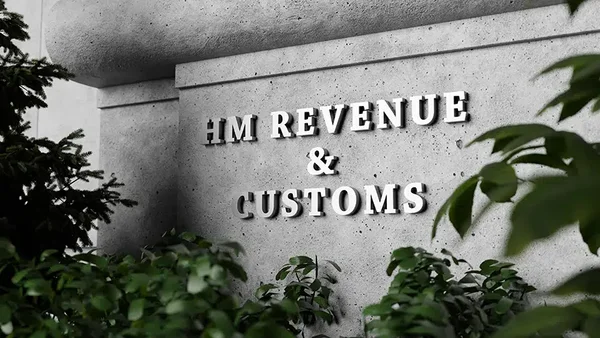
As the UK government moves forward with a suite of inheritance tax (IHT) reforms, families reliant on inherited property wealth are sounding the alarm.
With the nil-rate band frozen until 2030 and pension funds slated for inclusion in taxable estates by 2027, more estates will fall into the IHT net, even those previously considered safe. Reliefs such as Agricultural and Business Property Relief are also being reshaped, provoking concerns among inheritors, farmers, and family-run enterprises.
These changes carry substantial cost implications, from unexpected tax bills to forced sales of cherished assets, especially in a climate of rising property values. This article analyses the potential impacts of these reforms, hearing voices from inheritors, advisors, MPs, and estate planners, and examining their broader social and economic consequences.
Frozen Thresholds and a Shrinking Exemption Window
The government has kept both the standard IHT nil-rate band and the residency nil-rate band static until 2030, even as property values continue to climb. As a result, estates previously under the tax threshold now risk falling into taxable territory, potentially triggering a burden on middle-income families who once believed they were exempt.
Pension Pots Entering the Estate Equation
A sweeping reform scheduled for April 2027 will add unused pension pots and lump sum death benefits to taxable estates. Adam Scott of Trethowans warns: “From 2027, most unused pension pots … will be included as part of a person’s estate for IHT purposes.”
This inclusion could force heirs to pay inheritance tax on assets not previously considered part of the estate, many of which lack liquidity, resulting in cash-strapped beneficiaries or asset sales.
Caps on Reliefs Hit Hard on Agri-Property Owners
Significant changes are coming to Agricultural and Business Property Relief (APR/BPR). Notably, estates now will pay 20% IHT on the value of agricultural and business assets exceeding £1 million, despite the ability to spread payments interest-free over ten years. For married couples the threshold rises to approximately £3 million, but the impact remains far-reaching.

Growing Anger: Farmers Take to the Streets
Since November 2024, farmers have staged persistent protests, including tractors in central London, to oppose the reforms. Many argue that the policy threatens cash-poor but asset-rich operations, forcing heir farmers to sell land just to meet tax demands.
The Environment, Food & Rural Affairs (EFRA) Committee has urged a delay, calling for postponement until April 2027 and allowing final details to emerge by October 2026. Chair Alistair Carmichael commented that better communication and consultation are critical to avoid undermining farmer trust.
Hit to Family Businesses and Employment
A recent report estimates that capping BPR and APR could put 208,000 jobs in jeopardy across family-run farms and businesses, while leading to £1.9 billion in lost revenue between 2026 and 2029.
Over 50% of small firms are said to be postponing investment or halting recruitment, signaling a wave of long-term economic impact.
Estate Planning in Flux: Advisors Caution Clients
Wealth managers now advocate caution using Family Investment Companies (FICs). In the wake of Chancellor Reeves’ 2024 Autumn Budget update, which introduced IHT on unused pensions from 2027 and a 20% levy on non-exempt land, the planning tool is complex and costly.
While effective for select wealthy clients, FICs incur setup costs, elaborate legal structures, and capital gains tax liabilities, sometimes up to 25%. Still, the ability to spread IHT liability over ten years can make them a strategic asset.

Conclusion
The reshaping of inheritance tax rules marks a fundamental shift with powerful effects on UK families, farmers, and business owners. With frozen thresholds through 2030, inclusion of unused pension wealth by 2027, and strict caps on reliefs like APR/BPR, many inheritors now face IHT where they hadn’t before.
Cash-poor yet asset-rich inheritors, especially in farming, may have no choice but to sell property to settle taxes, despite interest-free repayment options. The robust response from street-level protests to EFRA’s call for delays reflects deep unease in rural communities and family-run enterprises.
Moreover, with hundreds of thousands of jobs at stake and nearly £2 billion in potential lost revenue, economists suggest the long-term economic repercussions could persist beyond the implementation window. As advisors recompute strategies and complexity grows, some wealthy individuals now consider FICs, though these structures come with additional tax and administration burdens.
If parliament proceeds as planned, the next few years will test the resilience of traditional wealth transfer models in the UK, pushing families toward early planning, potential asset disposals, and seeking policy reconsideration. Whether reforms will stabilize or catalyze more disruption remains to be seen.
Frequently Asked Questions
What is changing to the IHT thresholds?
The standard nil-rate band and residence nil-rate band will remain frozen until 2030, meaning more estates, especially with rising property values, could become liable for inheritance tax.
How will unpaid pension contributions affect IHT?
From April 2027, unused pension pots and lump sum death benefits will be added to taxable estates, raising the likelihood of IHT liabilities for previously exempt estates.
What is the effect on farms and rural property?
Transformations to Agricultural and Business Property Relief mean that estates paying IHT on non-exempt property over £1 million will incur a 20% tax, even if paid over ten years interest-free.
Why are farmers and family businesses protesting?
Farmers, faced with “asset-rich but cash-poor” situations, are protesting to avoid forced land sales. EFRA MPs have called for the IHT changes to be postponed until 2027 to cushion the impact.
How can families prepare for these reforms?
Experts recommend early evaluation, options include lifetime gifting, pension planning, Family Investment Companies (with complex costs), and discussing IHT strategies with a qualified advisor to minimise liabilities.











